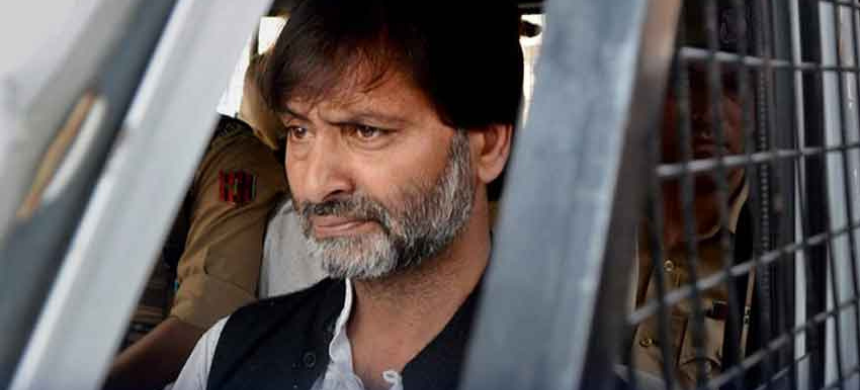Kashmiri liberation leader Yasin Malik has informed the Delhi High Court that he will defend himself in the appeal filed by the National Investigation Agency (NIA), which seeks the death penalty for him in a 2016 terror funding case.
Malik’s decision has highlighted concerns about India’s justice system, which he claims operates under the influence of the Hindutva policies of the BJP, targeting Kashmir, the only Muslim-majority state still under dispute according to United Nations resolutions.
Pakistan continues to demand a free and fair plebiscite in Jammu and Kashmir, which it claims has been illegally occupied by Indian authorities.
Read More — Kashmiri Leader’s Wife Receives Green Passport
During a video conference appearance before Justice Suresh Kait and Girish Kathpalia from Tihar Jail, Malik pointed out that, although he was previously allowed to appear physically in court, the Delhi High Court issued an order on August 4, 2023, mandating that he be presented via video conferencing without hearing his side. He requested the court to note that he was not allowed to speak when this order was made.
The bench responded that he could challenge this decision before the Supreme Court, but the high court itself could not acknowledge the ex-parte nature of the earlier order.
Pakistan’s Foreign Office has expressed serious concerns over Malik’s prolonged detention and alleged mistreatment, labeling his imprisonment as “unfair” and a “denial of fair trial.” This has drawn international attention to the human rights situation in the region.
Yasin Malik, a significant figure in Kashmiri politics, has been in custody under what Pakistan describes as a “30-year-old false case.” His family, including his 11-year-old daughter, Razia Sultana, and wife, Mashal Malik, have publicly called for his release, citing his deteriorating health and lack of access to proper medical treatment.
Currently detained in Tihar Jail, which is reported to have inhumane conditions, Pakistan has urged India to drop the charges against Malik and provide him with adequate medical care.
The Foreign Office’s statement emphasizes its deep concerns over India’s application of the National Investigation Agency (NIA) Act of 2008 against Malik, accusing India of exceeding “moral and legal limits.” This stance has drawn condemnation not only from Pakistan but also from the Organization of Islamic Cooperation (OIC) Liaison Group.











